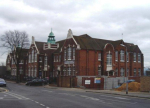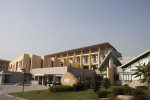World News
-
 Virgin Atlantic permanently ends Tel Aviv route, maintains ties through EL AL partnership
Virgin Atlantic has officially confirmed it will no longer operate its direct route between London Heathrow and Tel Aviv, permanently ending the service after previously suspending it in OctoberRead More...
Virgin Atlantic permanently ends Tel Aviv route, maintains ties through EL AL partnership
Virgin Atlantic has officially confirmed it will no longer operate its direct route between London Heathrow and Tel Aviv, permanently ending the service after previously suspending it in OctoberRead More... -
 India signs $7.4 billion deal to acquire 26 Rafale fighter jets for navy
India has finalized a $7.41 billion agreement with France to purchase 26 Rafale fighter jets for its navy, a senior official from the Indian Defence Ministry confirmed to Reuters on Monday.Read More...
India signs $7.4 billion deal to acquire 26 Rafale fighter jets for navy
India has finalized a $7.41 billion agreement with France to purchase 26 Rafale fighter jets for its navy, a senior official from the Indian Defence Ministry confirmed to Reuters on Monday.Read More... -
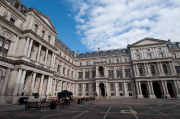 UK Foreign Secretary visits Gulf to strengthen security and drive economic growth
The Foreign Secretary is visiting Oman and Qatar this week to deepen the UK’s cooperation with Gulf partners on trade, defence, and regional security.Read More...
UK Foreign Secretary visits Gulf to strengthen security and drive economic growth
The Foreign Secretary is visiting Oman and Qatar this week to deepen the UK’s cooperation with Gulf partners on trade, defence, and regional security.Read More... -
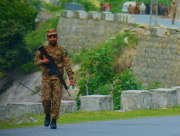 India orders all Pakistani nationals to leave amid soaring tensions after Kashmir attack
India has given all Pakistani nationals 72 hours to leave the country following a deadly militant attack in Kashmir that killed 26 tourists. The move, announced by India’s Foreign SecretaryRead More...
India orders all Pakistani nationals to leave amid soaring tensions after Kashmir attack
India has given all Pakistani nationals 72 hours to leave the country following a deadly militant attack in Kashmir that killed 26 tourists. The move, announced by India’s Foreign SecretaryRead More... -
 UK’s Reeves optimistic about trade deal with U.S.
UK Chancellor of the Exchequer Rachel Reeves expressed confidence on Thursday that Britain and the United States can reach a trade agreement aimed at easing the impact of U.S. importRead More...
UK’s Reeves optimistic about trade deal with U.S.
UK Chancellor of the Exchequer Rachel Reeves expressed confidence on Thursday that Britain and the United States can reach a trade agreement aimed at easing the impact of U.S. importRead More...

Culture
-
 Harrogate’s cherry blossoms rival Japan’s sakura season
While Japan’s iconic cherry blossom season draws millions each year, a town in North Yorkshire is proving you don’t need to fly 6,000 miles to experience the magic.Read More...
Harrogate’s cherry blossoms rival Japan’s sakura season
While Japan’s iconic cherry blossom season draws millions each year, a town in North Yorkshire is proving you don’t need to fly 6,000 miles to experience the magic.Read More... -
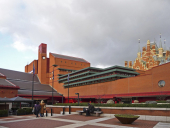 British Library set for £1.1 billion expansion
The British Library, the largest in the UK, is set for a major transformation with a £1.1 billion expansion project now approved.Read More...
British Library set for £1.1 billion expansion
The British Library, the largest in the UK, is set for a major transformation with a £1.1 billion expansion project now approved.Read More... -
 Export bars placed on two 18th century Agostino Brunias paintings
Two paintings by the 18th-century Italian artist Agostino Brunias, both depicting scenes from the Caribbean island of St Vincent, have been placed under temporary export bars to give UKRead More...
Export bars placed on two 18th century Agostino Brunias paintings
Two paintings by the 18th-century Italian artist Agostino Brunias, both depicting scenes from the Caribbean island of St Vincent, have been placed under temporary export bars to give UKRead More... -
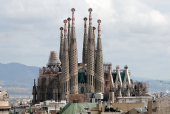 Pope recognizes Antoni Gaudí's "heroic virtues," puts him on path to sainthood
The Vatican has taken a significant step toward making renowned Spanish architect Antoni Gaudí a saint, officially recognizing his "heroic virtues." Often referred to as "God's architect,"Read More...
Pope recognizes Antoni Gaudí's "heroic virtues," puts him on path to sainthood
The Vatican has taken a significant step toward making renowned Spanish architect Antoni Gaudí a saint, officially recognizing his "heroic virtues." Often referred to as "God's architect,"Read More... -
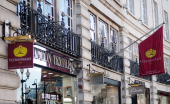 Britain’s oldest Indian restaurant faces closure amid Central London lease dispute
Veeraswamy, the UK's oldest Indian restaurant, is facing the threat of closure just before reaching its centenary, due to a lease disagreement with the Crown Estate.Read More...
Britain’s oldest Indian restaurant faces closure amid Central London lease dispute
Veeraswamy, the UK's oldest Indian restaurant, is facing the threat of closure just before reaching its centenary, due to a lease disagreement with the Crown Estate.Read More... -
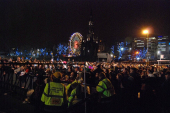 Communities invited to nominate beloved UK traditions for National Heritage List
This summer, communities across the UK will be able to nominate their favourite traditions—from iconic celebrations like Notting Hill Carnival and Hogmanay to time-honoured crafts likeRead More...
Communities invited to nominate beloved UK traditions for National Heritage List
This summer, communities across the UK will be able to nominate their favourite traditions—from iconic celebrations like Notting Hill Carnival and Hogmanay to time-honoured crafts likeRead More... -
 £20m museum renewal fund opens for England’s civic museums
Civic museums across England can now apply for a share of the new £20 million Museum Renewal Fund, aimed at boosting access to collections, enhancing educational programmes, andRead More...
£20m museum renewal fund opens for England’s civic museums
Civic museums across England can now apply for a share of the new £20 million Museum Renewal Fund, aimed at boosting access to collections, enhancing educational programmes, andRead More... -
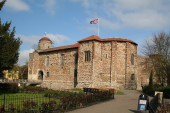 The underrated UK city that was England’s first capital — 1,000 years before London
Tucked away in Essex lies a city that predates London as England's capital by over a millennium. Rich in Roman and medieval history, Colchester only officially became a city in 2022 as part ofRead More...
The underrated UK city that was England’s first capital — 1,000 years before London
Tucked away in Essex lies a city that predates London as England's capital by over a millennium. Rich in Roman and medieval history, Colchester only officially became a city in 2022 as part ofRead More... -
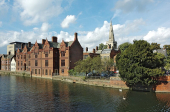 Universal Studios to open first UK theme park in Bedford by 2031, creating 28,000 jobs
The UK is officially getting its first Universal Studios theme park, with a grand opening set for 2031. The landmark project, backed by the UK government, is expected to bring in a staggeringRead More...
Universal Studios to open first UK theme park in Bedford by 2031, creating 28,000 jobs
The UK is officially getting its first Universal Studios theme park, with a grand opening set for 2031. The landmark project, backed by the UK government, is expected to bring in a staggeringRead More... -
 MI5 lifts the veil on 115 years of secrets in new exhibition
For the first time in its 115-year history, MI5 is pulling back the curtain on its shadowy past. A new exhibition at the National Archives in London, MI5: Official Secrets, offers the public anRead More...
MI5 lifts the veil on 115 years of secrets in new exhibition
For the first time in its 115-year history, MI5 is pulling back the curtain on its shadowy past. A new exhibition at the National Archives in London, MI5: Official Secrets, offers the public anRead More... -
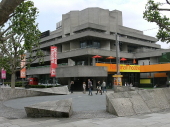 Tourist tax could help revive London’s arts and culture scene
A growing number of voices are calling on the government to allow London to introduce a tourist tax, similar to those already in place in many popular European cities. The Centre for LondonRead More...
Tourist tax could help revive London’s arts and culture scene
A growing number of voices are calling on the government to allow London to introduce a tourist tax, similar to those already in place in many popular European cities. The Centre for LondonRead More... -
 £1bn Chinese ceramics gift to British Museum approved
The Charity Commission has officially approved the largest donation in the British Museum’s history—a collection of Chinese ceramics valued at around £1 billion.Read More...
£1bn Chinese ceramics gift to British Museum approved
The Charity Commission has officially approved the largest donation in the British Museum’s history—a collection of Chinese ceramics valued at around £1 billion.Read More... -
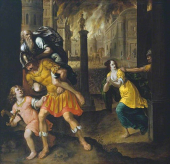 UK to return Nazi-looted painting to Jewish family
A 17th-century painting stolen by the Nazis in 1940 from a Jewish art collector in Belgium is set to be returned to the collector’s descendants, the British government announced on Saturday,Read More...
UK to return Nazi-looted painting to Jewish family
A 17th-century painting stolen by the Nazis in 1940 from a Jewish art collector in Belgium is set to be returned to the collector’s descendants, the British government announced on Saturday,Read More...

British Queen celebrates
Most Read
- Teen held after US woman killed in London stabbings
- Heave-ho Harry! Prince prepares to join the walking wounded in ice trek to North Pole
- Football: Farhad Moshiri adamant Everton deal above board
- "Master of English Style". Interview with Designer Lydia Dart
- Letter to the Financial Times from Lord Mayor Alderman Michael Bear
Comment
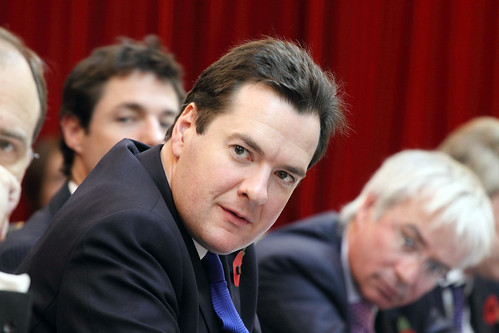
There is a growing sense of economic optimism for the year ahead compared to 12 months ago, a poll of business directors has suggested.
Business leaders are starting 2013 with a better outlook on the coming year than at the beginning of 2012, a survey of 1,369 members of the Institute of Directors (IoD) found.
According to the findings, the proportion who expect 2013 to improve on the previous year exceeds those with a pessimistic outlook by a margin of plus 31%, a direct reversal from the start of 2012, when the balance of opinion was minus 31%.
The poll suggested long-term confidence has also increased, with the balance of those expecting higher UK GDP growth over the coming decade compared to the previous 10 years rising to plus 22%, compared to minus 9% in the first quarter of 2012, minus 8% in second quarter and plus 10% in the third quarter.
Views on the probability of a return to recession have fallen, with 16% deeming the risk high, 49% moderate and 34% low.
This compares to 35% who said the risk was high, 53% moderate and 11% low at the start of 2012. The number foreseeing a high risk of a triple-dip recession has fallen from approximately one in three to one in six.

Ice sheets covering Greenland and Antarctica are melting three times faster today than they were in the 1990s, according to a "definitive" study of satellite data.
The amount of ice lost is enough to raise world sea levels by almost one millimetre a year. Since 1992, it has added 11.1 millimetres to global sea levels - contributing around a fifth of the total rise.
About two thirds of the ice loss was from Greenland and the remainder from Antarctica, said scientists.
Until now, there has been confusion over what is happening to the ice sheets in a warming world. Estimates have differed greatly, with some studies even suggesting gains rather than losses.
The new survey, published in the journal Science, is said to be the most accurate assessment to date - ending 20 years of uncertainty. It confirms that, with the exception of East Antarctica, both land masses are losing ice. But big differences in the pace of change were seen at each pole.
While the rate of ice loss from Greenland had increased almost five-fold since the mid-1990s, it had remained fairly constant in Antarctica.
Study leader Professor Andrew Shepherd, from the University of Leeds, said: "The success of this venture is due to the co-operation of the international scientific community, and due to the provision of precise satellite sensors by our space agencies. Without these efforts, we would not be in a position to tell people with confidence how the Earth's ice sheets have changed, and to end the uncertainty that has existed for many years."
The study showed that between 1992 and 2011, more than 4,000 gigatonnes of ice was lost from the Antarctic and Greenland ice sheets. A gigatonne is one billion tonnes. Despite its much smaller size, the Greenland ice sheet shed the most - 2,940 gigatonnes.
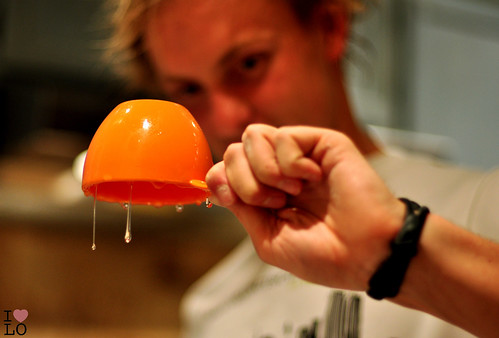
Finding healthy recipes for weight loss has been a subject growing in popularity, especially in the 21st century. Unfortunately, it seems like everyone and their so-called medically trained brother have their opinion on what "healthy" really means. After reviewing fad diets, not-so-fad diets and common sense, here is a summary of what healthy recipes for weight loss should mainly consist of.
Use foods that have as few ingredients as possible. When looking at the ingredients on the label, less is better. The fewer ingredients listed, the more naturally made it is. Better yet, if there is no label at all, you are going all nat-ur-al. Think about it. There are no ingredient labels on an apple, broccoli or russet potato, is there?
Usually the first five ingredients make up most of the food product. These first five ingredients should never include the following:
- High Fructose Corn Syrup
- Hydrogenated Oils
- Bleached and/or Enriched Flours
- Highly Processes Sugars
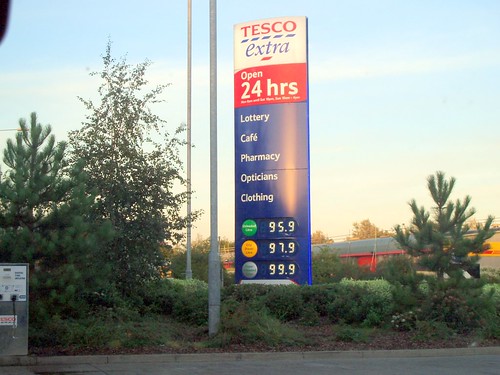
The price of petrol at the pumps is back up towards near-record levels, the AA has said.
The increase comes as European refinery profits have risen to a five-year high, the AA added.
Petrol at UK pumps now costs an average of 139.71p a litre - within 3p of the 142.48p a litre record set in mid April.
Diesel now costs an average 143.98p a litre compared with the mid-April record of 147.93p.
Petrol had fallen to a summer low of 130.81p a litre and diesel to 136.12p - both on July 1.
The AA said that since then, the cost of a typical 50-litre tank refill has risen £4.45 and £6.29 for an 80-litre commercial van tank. A two-car family is seeing its monthly petrol costs rise by £18.90.
AA president Edmund King said: "Once again UK drivers find themselves being dragged over a barrel, as does business and Bank of England inflation targets. Last week, Government statistics showed that traffic on minor country roads fell by 5% - such was the impact of record high fuel prices on rural communities."
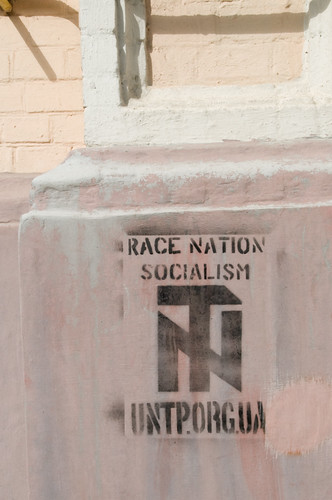
Debora Weiss: You are an author of a reasonably large number of studies on xenophobia, anti-Semitism, and racism. Could you please assess the current situation in this area, including East European countries?
Oleg Kozerod: - Racism is one of the most burning issues for Eastern European societies. Due to various reasons which are specific for each state in the region, this topic is particularly pointed in the mentioned countries. It’s explained by a range of prejudices in these societies, younger generation education gaps, and a lack of political will to combat racism. Many former USSR states face serious ideology troubles; their population does not know what ideas are the best to follow, why and whom to fight with. This leads to creation of public organizations and parties confessing racism and drawing population into their “struggle against the world evil”.
Weiss: - For a long time the UK has been running discussions on the scale of xenophobia and anti-Semitism in such countries as Poland and Ukraine. Do you think Ukraine has succeeded in overcoming racism?
Kozerod: - Angry letters from the foreign affairs ministers and politicians from these countries which were based on investigations of BBC reporters are well known to those who follow this topic. In my opinion, this issue got a completely wrong interpretation among the elites in East European states and, as a result, the response was inadequate. What happened in fact? BBC reporter arrived at the Kharkiv stadium (Ukraine) where he just wanted to make footage on the city’s preparation to the UEFA Cup. What did he see while filming? Local racists on the rostrum were beating the Indian or Pakistani students. In fact, the police did not interfere with the process and took no steps after the incident. Injured students commented on this egregious case recorded by BBC reporters. When this footage was watched by the footballer Sol Campbell, he said it was better to avoid visiting this country. Feedback of the national authorities was quite weird; they began to boil over “creation of Ukraine’s negative image abroad”. And they did it instead of just finding those who are responsible for this case in Kharkiv, punishing them in some way, and announcing this to the whole Europe. This is what the authorities of any country would do when finding out about any barbarous conduct from their or foreign reporters. Apparently, this is not yet the behavior followed in Ukraine.
Weiss: - Is there any racism observed in East European countries, in particular, Ukraine?
Kozerod: - Yes, unfortunately. Besides, it’s seen with the naked eye. You can easily meet racists in public places, among your neighbors or even close friends.
Weiss: - Fortunately, the racism issue is not so widespread in other regions of the world, in particular, in the developing countries of the East. By the way, how do you assess the Islamic Revolution development process, in particular, recent events in Syria?
Kozerod: - We see the whole international army acting during the Arab Spring in the North Africa and Middle East states. It aims to overthrow, as they believe, the outdated totalitarian regimes. For me it’s an open issue how fast this total revolution will cross the frontier of the former USSR.

Hard-hit rail commuters face a greater-than-expected 6.2% hike in average fares in the new year after official figures revealed a shock rise in the inflation rate.
The retail prices index (RPI) figure for July, which is used to determine how much regulated rail fares including season and saver tickets are allowed to increase in 2013, rose to 3.2% from 2.8% the previous month, according to the Office for National Statistics.
The City had expected the rate to remain flat at 2.8%.
The average fare increase for England is calculated by adding 3% to RPI, meaning a hike of 6.2%, although some tickets can go up by a further five percentage points - or more than 11% - as long as they are balanced by cuts on other fares.
The greater-than-expected rise in RPI, which was accompanied by an increase in the closely watched consumer prices index (CPI) rate to 2.6% from 2.4%, was driven by hefty hikes in air fares, while there were fewer discounts from retailers who had already slashed prices in June to shift stock amid the wash-out weather.
The planned hike in average regulated ticket prices, which follows a similar increase for 2012, will mean that fares have risen by more than inflation for 10 years in a row. Governments in Wales and Scotland have indicated that regulated fares are likely to go up by one percentage point above RPI.
Unions, transport campaigners and rail passenger groups staged a day of action at railway stations across the country to protest against the "massive" hikes.
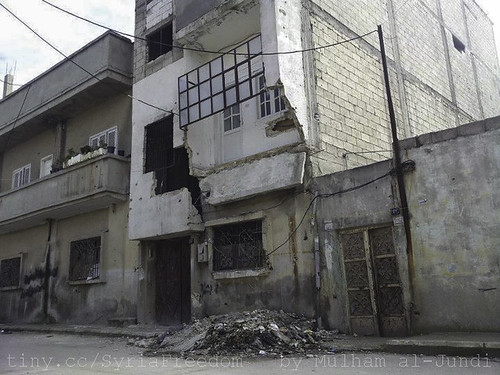
Britain is to give an extra £10 million of funding to help more than 45,000 refugees fleeing the conflict in Syria, the International Development Secretary has announced.
Andrew Mitchell made the pledge as he visited the Za'atri tented refugee camp in Jordan, on the Syrian border.
The money represents a four fold increase in British aid for refugees which was previously £3 million.
Mr Mitchell said: "In the midst of its sporting triumphs at the London Olympics, Britain has not forgotten the people of Syria. Today's extra support shows we stand alongside those who have lost everything because of the actions of this ruthless regime.
"The stories I've heard today paint a horrifying picture of everyday life for hundreds of thousands of ordinary people in Syria. I've met people left with only the clothes on their backs. I've spoken to families forced to flee their homes in the dead of night, some walking miles under the constant threat of violence and death if caught trying to escape."
It will provide emergency food rations for more than 18,000 Syrian refugees, plus safe drinking water and sanitation amid the hot conditions, including for mothers and children caught up in violence.
Funding will go to three humanitarian bodies providing assistance in the region, the World Food Programme, Unicef, and UNHCR. Approximately £5.5 million of the additional funding will be used for activities in Jordan and the remainder in Syria's other neighbouring countries, Lebanon, Turkey and Iraq.

New car sales rose again last month, figures from the Society of Motor Manufacturers and Traders (SMMT) show.
There were 189,514 new registrations in June 2012 - a 3.49% increase on the June 2011 total.
Last month's purchases took year-so-far sales to 1,057,680 - a 2.72% rise on January-June 2011.
Private sales did well last month, rising 9.8% compared with June 2011, and are up 8.7% for the first half of this year.
Total new car sales for the April-June 2012 period have risen 4.8% and the SMMT reckons year-end sales will reach 1.95 million - just ahead of last year's 1.94 million total.
SMMT chief executive Paul Everitt said: "Despite domestic and international economic concerns, UK motorists are responding positively to new products and the latest fuel-efficient technology.
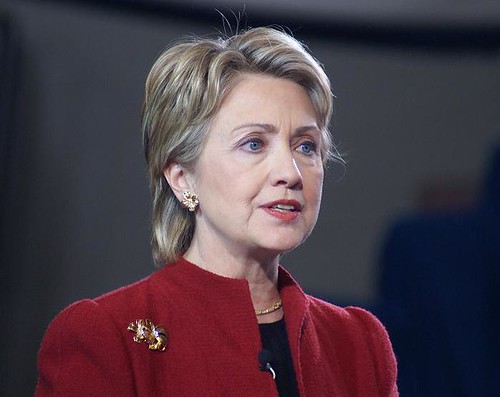
Up to 27 million people are living in slavery around the world, US Secretary of State Hillary Clinton estimated as the US unveiled its annual report into human trafficking.
But the report showed that as governments become more aware of the issue, instigating tough new laws and programs to help victims, progress is being made in wiping out what it called the "scourge of trafficking."
"The end of legal slavery in the United States and in other countries around the world has not, unfortunately, meant the end of slavery," said Clinton.
"Today it is estimated as many as 27 million people around the world are victims of modern slavery, what we sometimes call trafficking in persons," she said at the unveiling of the report at the State Department.
"Those victims of modern slavery are women and men, girls and boys, and their stories remind us of the kind of inhumane treatment we are capable of as human beings," said Clinton.
"Whatever their background, they are the living, breathing reminders that the work to eradicate slavery remains unfinished."
As America prepares to mark the 150th anniversary of the proclamation of the emancipation of US slaves, people must reflect on "how much further we have to go to free all these 27 million victims," Clinton added.
Out of the 185 countries included in the 2012 report, only 33 complied fully with laws in place to end human trafficking, putting them at the top of a four-tier ranking system.
But five countries had moved up from the bottom blacklist known as tier 3, including Myanmar and Venezuela, to be included among the 42 countries now on what is known as a tier 2 watchlist.
Myanmar was removed from the blacklist because the government "took a number of unprecedented steps to address forced labor and the conscription of child soldiers; these steps amount to a credible commitment to undertake anti-trafficking reforms over the coming year," the report said.
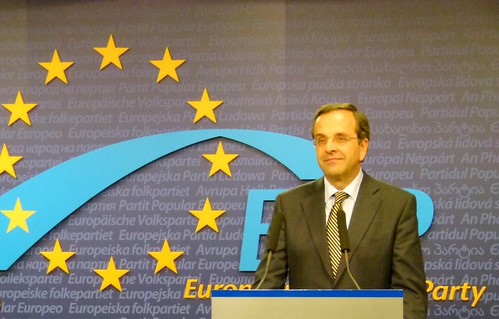
Greeks readied for their second election in six weeks with all the top candidates now calling for renegotiation of a bailout deal despite warnings that Greece must toe the line or leave the euro.
Sunday's election will be watched around the world amid concern over the shockwaves that a Greek euro exit would send through the global economy and will play into talks by European leaders divided on how to resolve the debt crisis.
"To be or not to be in the eurozone? That is the question," said Lucas Papademos, a former prime minister and European Central Bank vice-president, paraphrasing William Shakespeare's Hamlet as Greece's own tragedy unfolds.
The New Democracy conservatives and Syriza radical leftists have been running neck-and-neck in the polls for an election which was triggered by an inconclusive vote on May 6 in which no party could form a governing coalition.
Unofficial recent polls have given a slight advantage to New Democracy -- a rumour that led to a 10.1-percent rally on the Athens stock market on Thursday.
That boost petered out on Friday, however with the market down 1.0 percent.













